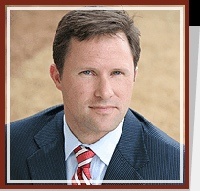Mansfield White Collar Crime Lawyer, Georgia
Sponsored Law Firm
-
 x
x

Click For More Info:
-
The Ford Law Firm
Assault, DUI, Firearms, Murder, more... Expect Results, Not Excuses
I understand how the system works. Potentially, even getting the case dismissed before it is ever filed against you…it is important to act quickly. Call now at the number below.
800-298-1630  Thomas Ford Alpharetta, GA
Thomas Ford Alpharetta, GAAttorney At Law - GA, 1996
University of Florida, J.D. - 1995
 State & Federal Law
State & Federal LawCriminal cases are filed in both State and Federal Courts. Click for Info.
M. Byron Morgan
✓ VERIFIEDCriminal, DUI-DWI, Felony, Misdemeanor, White Collar Crime
Byron has been practicing criminal defense and family law for over 28 years. Look at his website at www.byronthelawyer.com. Byron constantly has cli... (more)
Thomas Ford
✓ VERIFIEDCriminal, DUI-DWI, Felony, RICO Act, White Collar Crime
Expect Results. Not Excuses
FREE CONSULTATION
CONTACTCharles C. Murphy
Litigation, Intellectual Property, White Collar Crime, Antitrust
Status: In Good Standing Licensed: 52 Years
Patrick J. McDonough
Litigation, White Collar Crime, DUI-DWI, Criminal
Status: In Good Standing Licensed: 30 Years
W. Carl Lietz
Federal Appellate Practice, Public Interest Law, White Collar Crime, Criminal
Status: In Good Standing
Steven Paul Berne
Litigation, Federal, White Collar Crime, Criminal
Status: In Good Standing Licensed: 37 Years
FREE CONSULTATION
CONTACTFREE CONSULTATION
CONTACT

 Thomas Ford Alpharetta, GA
Thomas Ford Alpharetta, GA State & Federal Law
State & Federal Law


